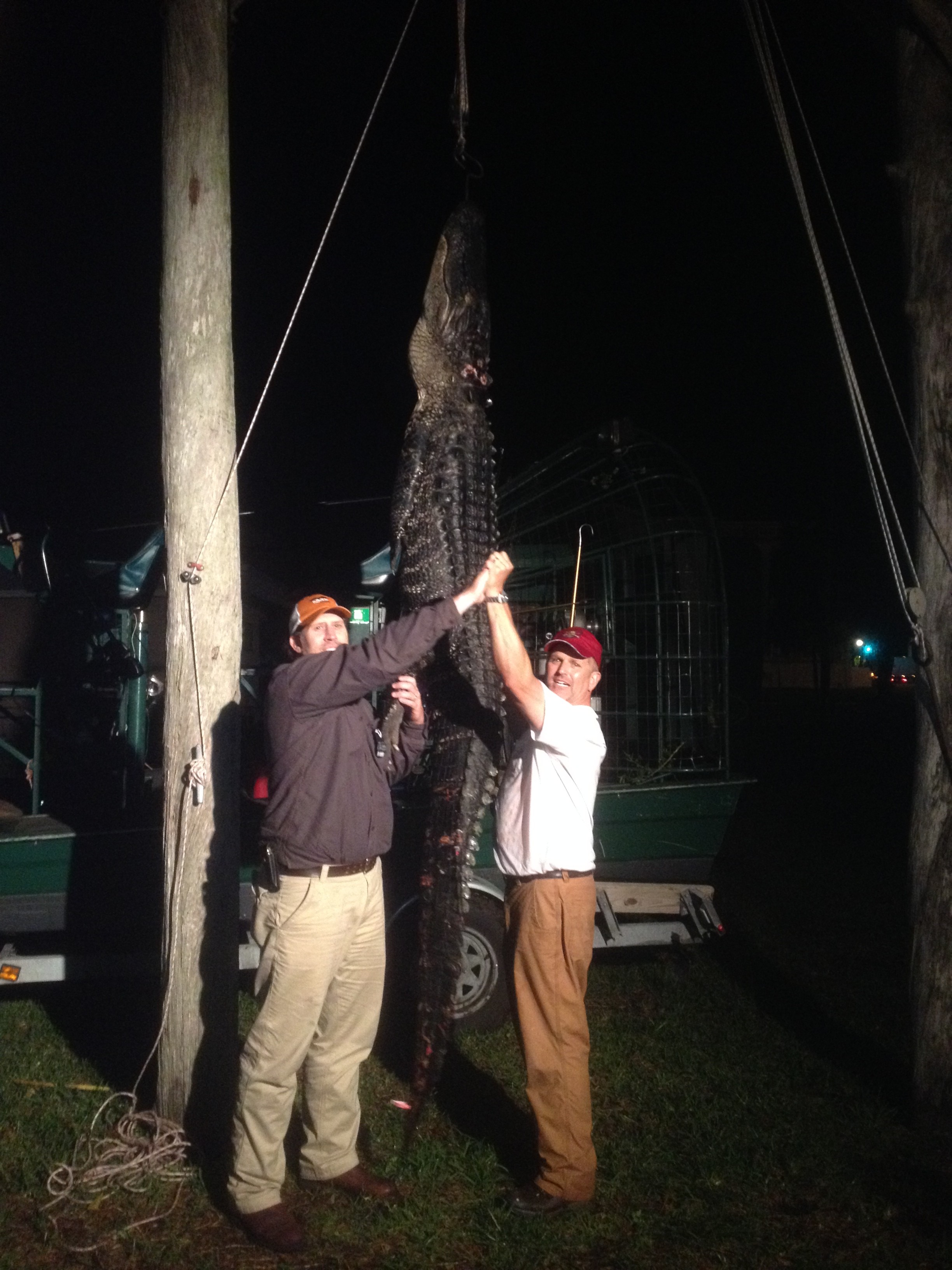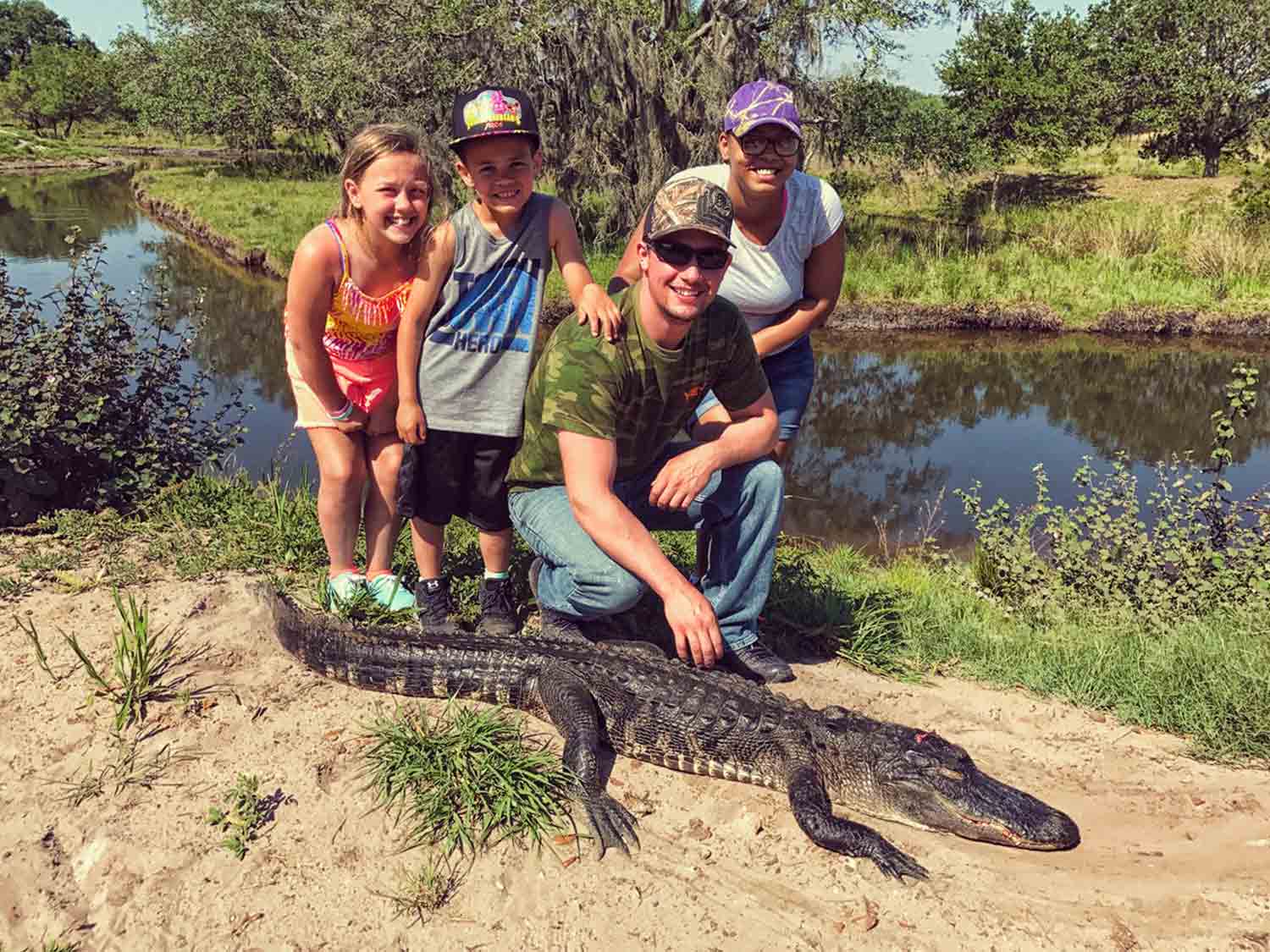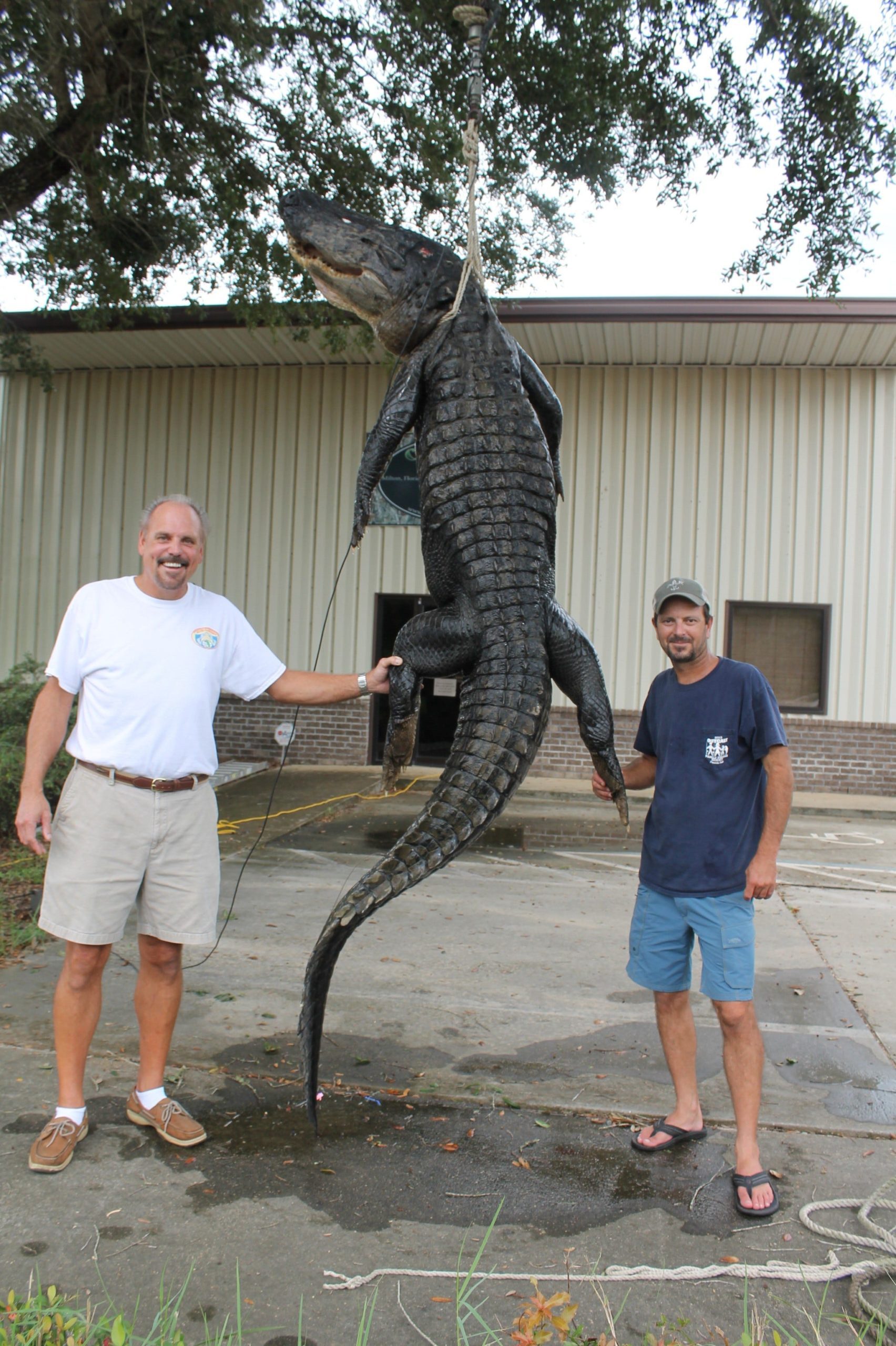How Much Do Gator Hunters Make Per Gator? The Untold Secrets Of Alligator Hunting
Ever wondered how much gator hunters make per gator? Well, buckle up, because we’re diving deep into the wild world of alligator hunting, where danger meets dollars. Imagine this: you're out in the swamps, armed with nothing but your wits and a strong rope, hunting one of nature's most ancient creatures. Sounds thrilling, right? But here's the real question—how much is all that effort worth? Let’s find out as we uncover the truth behind the paycheck of gator hunters.
Alligator hunting isn’t just about adrenaline rushes; it’s also a business. For those who live off the land and make a living from these scaly beasts, understanding how much they earn per gator is crucial. Whether you're an aspiring hunter or simply curious about the economics behind this unusual profession, this article will give you the inside scoop.
From state regulations to market prices, there's a lot that goes into determining how much gator hunters make. So, whether you’re planning to become a gator hunter yourself or just want to know what drives their income, stick around. We’ve got all the juicy details you need!
- Diddy Joker The Ultimate Guide To His Career Personality And Influence
- Would Squid Game Be Legal Exploring The Reality Behind The Global Phenomenon
Understanding the World of Alligator Hunting
Before we jump into the numbers, let's take a moment to understand what it means to be a gator hunter. It's not just about grabbing a gun and heading out to the swamp. There’s a lot more to it than meets the eye. First off, hunting alligators is heavily regulated in most states, especially in Florida, where the practice is most popular.
These regulations exist to protect both the hunters and the alligator population. You see, gators were once on the brink of extinction, and conservation efforts have helped bring them back. That’s why hunters need permits, tags, and sometimes even guides to ensure they’re doing things by the book.
Key Regulations Every Gator Hunter Must Know
Here’s a quick breakdown of some key rules:
- Filmy The Ultimate Guide To Exploring Indian Cinema In 2023
- 9xmovies Press Your Ultimate Guide To The Controversial Streaming Platform
- Each hunter is usually allowed a limited number of tags per season.
- Hunters must adhere to specific size restrictions—no taking baby gators!
- Some states require hunters to use non-lethal methods, like harpoons, instead of firearms.
- Seasons are short, typically lasting only a few weeks, so hunters have to act fast.
These regulations might sound like a hassle, but they’re essential for maintaining a healthy ecosystem. Plus, they add a layer of challenge to the hunt, making it even more rewarding when you succeed.
How Much Do Gator Hunters Make Per Gator? Breaking Down the Numbers
Now, let’s get down to brass tacks. How much do gator hunters make per gator? The answer depends on several factors, including the size of the gator, the market demand, and even the location. On average, hunters can earn anywhere from $30 to $200 per gator, depending on these variables.
Here's a closer look at what influences their earnings:
Size Matters: The Bigger the Gator, the Bigger the Paycheck
It’s no surprise that larger alligators fetch higher prices. Why? Because bigger gators mean more meat, more hide, and more overall value. A six-foot gator might only bring in around $50, while a ten-footer could net closer to $200. That’s a significant difference!
But here's the kicker—bigger gators are harder to catch. They’re smarter, stronger, and more elusive. So, while the reward is greater, so is the risk. It’s a trade-off that every hunter has to weigh carefully.
Market Demand: What's Hot Right Now?
The demand for alligator products also plays a big role in how much hunters earn. For instance, if leather goods made from alligator hides are in high demand, hunters can expect to see higher prices. Similarly, if there’s a surge in interest for alligator meat, that too can drive up earnings.
Market trends can change quickly, so savvy hunters keep an eye on industry news and adjust their strategies accordingly. It’s not just about catching gators—it’s about knowing when and where to sell them.
The Economics of Alligator Hunting: More Than Just Meat and Hide
When people think about gator hunting, they often assume it’s all about selling meat and hides. While those are certainly major sources of income, there’s more to the story. Hunters can also make money through:
1. Trophies and Souvenirs
Some hunters sell gator heads, teeth, and even full mounts as trophies or souvenirs. These items can fetch premium prices, especially if the gator is particularly large or unique.
2. Guiding and Tourism
Believe it or not, many hunters supplement their income by offering guided tours or hunting experiences. Tourists love the thrill of getting up close and personal with alligators, and hunters can charge a pretty penny for the experience.
3. Educational Programs
Finally, some hunters use their expertise to educate others. Whether it’s giving talks at schools or participating in wildlife documentaries, there are plenty of opportunities to turn knowledge into cash.
The Challenges of Being a Gator Hunter
Of course, it’s not all sunshine and dollar signs. Being a gator hunter comes with its fair share of challenges. From dealing with unpredictable weather to navigating treacherous swamps, the job isn’t for the faint of heart.
Physical Demands
Hunting alligators is physically demanding work. You’re often out in the elements for hours at a time, battling mosquitoes, heat, and humidity. Not to mention, handling a live gator requires strength and skill. One wrong move, and you could end up injured—or worse.
Financial Risks
There’s also the financial risk to consider. Permits, equipment, and other expenses can add up quickly. And if you don’t catch enough gators during the season, you might not recoup your costs. It’s a gamble that many hunters are willing to take, but it’s not without its risks.
A Day in the Life of a Gator Hunter
So, what does a typical day look like for a gator hunter? Let’s break it down:
Morning Prep
Most hunters start their day before sunrise. They check their gear, load up their boats, and head out to their designated hunting area. This part of the day is all about preparation and strategy.
The Hunt
Once on the water, hunters use a variety of techniques to locate and capture gators. Some prefer to use spotlights to find gators at night, while others rely on their knowledge of gator behavior to predict where they’ll be.
Processing the Catch
After a successful hunt, the real work begins. Hunters must process the gator quickly to preserve its value. This involves skinning the hide, removing the meat, and preparing the remains for sale or storage.
Success Stories: Real Hunters, Real Numbers
To give you a better idea of what it’s like to be a gator hunter, let’s hear from some real-life success stories. These hunters have mastered the art of alligator hunting and are reaping the rewards.
John Doe: The Veteran Hunter
John Doe has been hunting gators for over 20 years. He averages around 20 gators per season and estimates his earnings at around $4,000. “It’s not easy money,” he says, “but it’s worth it for the thrill and the sense of accomplishment.”
Jane Smith: The Rising Star
Jane Smith is a newer hunter, but she’s already making waves in the industry. Last season, she caught 15 gators and made over $3,000. Her secret? A combination of skill, strategy, and a little bit of luck.
Tips for Aspiring Gator Hunters
If you’re thinking about becoming a gator hunter, here are a few tips to get you started:
- Start small. Don’t try to catch the biggest gator on your first attempt.
- Invest in quality gear. Good equipment can make all the difference.
- Learn from experienced hunters. There’s no substitute for hands-on experience.
- Stay safe. Always prioritize your safety over anything else.
Conclusion: Is It Worth It?
In conclusion, how much do gator hunters make per gator? The answer varies depending on a range of factors, but one thing is clear: it’s a rewarding—and challenging—profession. While the financial rewards can be significant, they come with risks and hard work.
So, if you’re considering a career in alligator hunting, remember this: it’s not just about the money. It’s about the adventure, the connection to nature, and the satisfaction of mastering a difficult skill. If that sounds like something you’d enjoy, then maybe it’s time to grab your harpoon and head out to the swamp.
And don’t forget to leave a comment below and share this article with your friends. Who knows? You might inspire the next generation of gator hunters!
Table of Contents
- How Much Do Gator Hunters Make Per Gator?
- Understanding the World of Alligator Hunting
- Key Regulations Every Gator Hunter Must Know
- Breaking Down the Numbers
- Size Matters
- Market Demand
- The Economics of Alligator Hunting
- Challenges of Being a Gator Hunter
- A Day in the Life of a Gator Hunter
- Success Stories
- Comeuppance The Ultimate Guide To Understanding Its Meaning Importance And Reallife Examples
- Nikki Catsouras Death The Tragic Story That Shook The Nation

Gator HuntingGator Gallows

Gator Trophy Florida Gator Hunting By Get Bit Outdoors

Local hunters tell a gator tale Santa Rosa Press Gazette